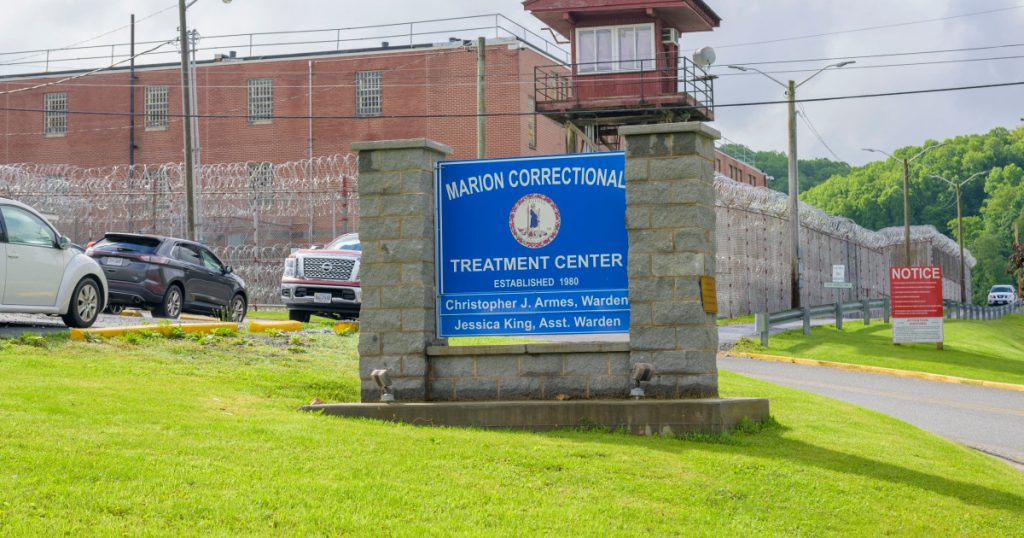The Virginia State Police investigator encountered an inmate at the Marion Correctional Treatment Center who described “unbearable” conditions where toilets would freeze over, leading to inmates developing hypothermia. Following the investigation into the death of Charles Givens, a developmentally disabled inmate, the grand jury did not bring criminal charges, prompting Givens’ sister to file a federal lawsuit alleging mistreatment and cold-water torture. The lawsuit has sparked concerns about general conditions at the prison, specifically the issue of hypothermia and pneumonia among mentally ill inmates being hospitalized multiple times for these conditions.
Records obtained by the Associated Press show that inmates at Marion were hospitalized at least 13 times for hypothermia in three years during cold-weather months, raising concerns among medical providers at the prison. Experts not affiliated with the prison noted that the number of hypothermia hospitalizations is unusually high and should have triggered further investigation. The prison officials declined to comment on the records and pending litigation, withholding information requested by the AP under the state’s open-records law regarding Givens’ death and complaints about cold temperatures.
The Marion prison, which houses mentally ill offenders and general population inmates, has not seen major improvements since 1955, according to state procurement documents. In the video exchange obtained by the AP, an inmate described the lack of functional heat in some areas of the prison, while also claiming that officers used opening exterior windows as a form of punishment, contributing to the cold indoor temperatures. The U.S. Centers for Disease Control and Prevention warn that hypothermia, which can be fatal, can occur in temperatures above 40 degrees Fahrenheit if a person is chilled from water.
Court records and emails revealed discussions among medical workers at the prison expressing concerns about the cold conditions and ensuring proper blankets and closed windows. An institutional investigator admitted the part of the facility where Givens was housed was colder and indicated that he wouldn’t be surprised to hear of hypothermia complaints. Givens was hospitalized for hypothermia five times in the last year of his life, leading to internal discussions among prison staff about his care and wellbeing.
A special grand jury empaneled in 2022 found Givens’ death suspicious and described conditions at the prison as inhumane and deplorable. The grand jury acknowledged ice forming on the water in toilets and referred to the living conditions in the prison sector housing mentally ill inmates as unsuitable. While the grand jury did not find sufficient evidence to support criminal charges in Givens’ death, they recommended reconsidering the case if new evidence were to emerge. The civil lawsuit filed by Givens’ sister named five officers who denied the allegations of torture and abuse.
As the lawsuit unfolds, the Office of the Attorney General has sought to block additional discovery into hypothermia and cold exposure-related allegations, arguing that these incidents are unrelated to the cause of Givens’ death. However, a magistrate judge denied this motion, allowing further investigation into the issues of cold temperatures at the prison. The FBI is also reportedly looking into Givens’ death, which occurred while he was serving time for a previous crime, and the lawsuit filed on behalf of his sister highlights his vulnerabilities due to his intellectual and emotional limitations caused by a childhood brain injury.


